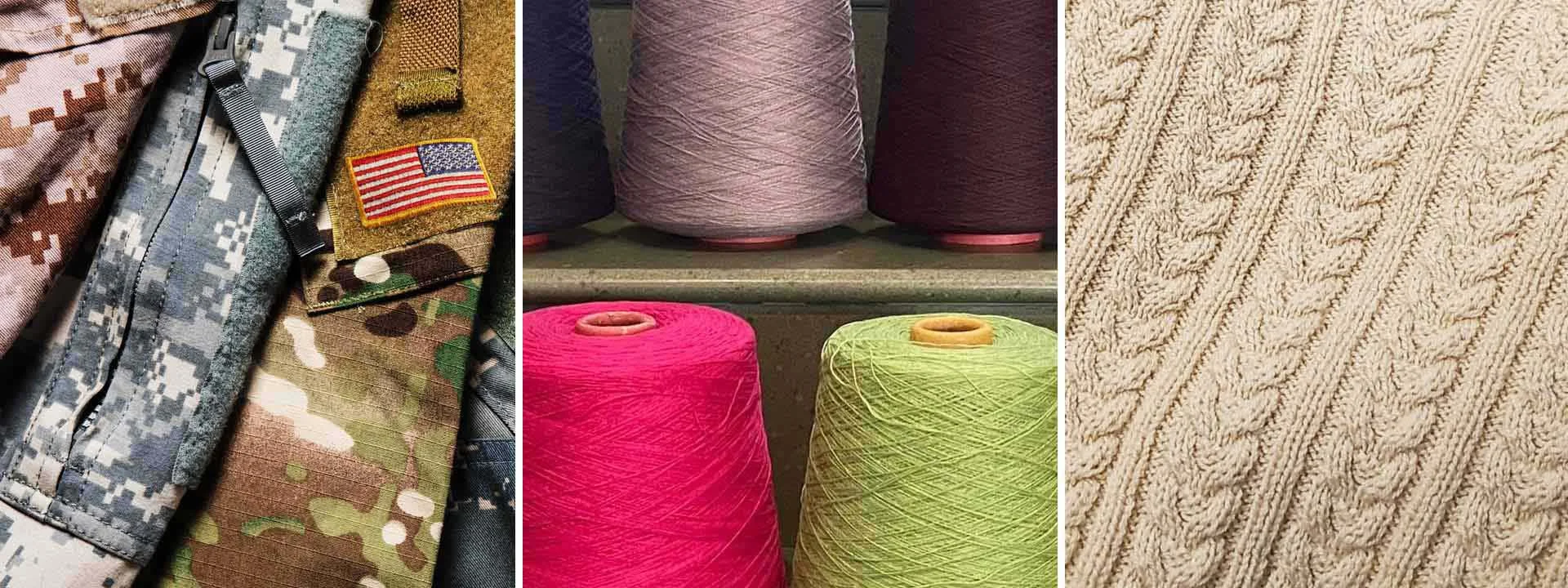
Research or Regress
What if sustainable clothing could protect soldiers?
Inspired by nature, Penn State’s Procell fiber is biodegradable, durable, and designed to perform in the toughest conditions—without toxic additives.
For soldiers working in extreme environments, durable and comfortable uniforms are a necessity to keep them safe from workplace hazards. Every year, hundreds of military personnel die from on-duty accidents like fires or chemical burns, and thousands more suffer injuries and diseases—in large part due to inadequate clothing.
“Traditional materials do not meet the needs of the U.S. military,” said Kent Smith, who works with the defense and aerospace-focused technology developer, ARCTOS Technology Solutions.
To find a solution, Smith is partnering with Melik Demirel, Huck Chair in Biomimetic Materials and Pearce Professor of Engineering at Penn State, who looks to nature for inspiration.

The DOD is looking for PFAS-free, flame-resistant fibers and sees real potential in biomanufactured materials like Procell for this critical need.”
Kent Smith
The Challenge: Creating Military Gear That Protects and Lasts
Most flame-retardant materials developed since the 1940s use chemical coatings containing per- and polyfluoroalkyl substances (PFAS), often called "forever chemicals." These PFAS chemicals can negatively impact human health, driving a significant push to find safer alternatives. The Department of Defense (DOD) is actively seeking PFAS-free fibers that are resistant to fire and won't melt when exposed to the heat of explosions, unlike polyester. DOD sees immense potential in "biomanufacturing"—using cells to make materials in a lab, inspired by nature—to develop new kinds of resilient fibers.
“The DOD is looking for PFAS-free, flame-resistant fibers and sees real potential in biomanufactured materials like Procell for this critical need,” said Smith.
Demirel’s surprising solution came from under the sea. Called Procell, the fiber he created with inspiration from proteins found in squid teeth, which are strange circular objects inside the suction cups of the animals’ tentacles.
He discovered that he could make the squid proteins in his lab and harness their strength and flexibility to create the Procell fiber, which won international awards by clothing giants H&M and Tommy Hilfiger.
Fashioning Impact with Research
The fibers aren’t just functional, they’re fashionable. While protecting those who serve our country is a top priority, Demirel realized the squid teeth proteins could also help average consumers by creating more sustainable clothing that’s better quality.
It takes about two weeks for ‘fast fashion’ garments, primarily made of polyester and other synthetic fibers, to go from product design to being available in stores. Unsurprisingly, the use of harmful chemicals and microplastics not only causes pollution but also accelerates the deterioration of the fiber. The garments begin to fall apart, leaving consumers to buy more and perpetuating the cycle.
Like many others, Smith wanted something better. He found it—and much more—in Demirel’s Penn State lab.
This is Penn State Research

What happens if it stops?
Learn more about the implications of federal funding cuts to your future.
